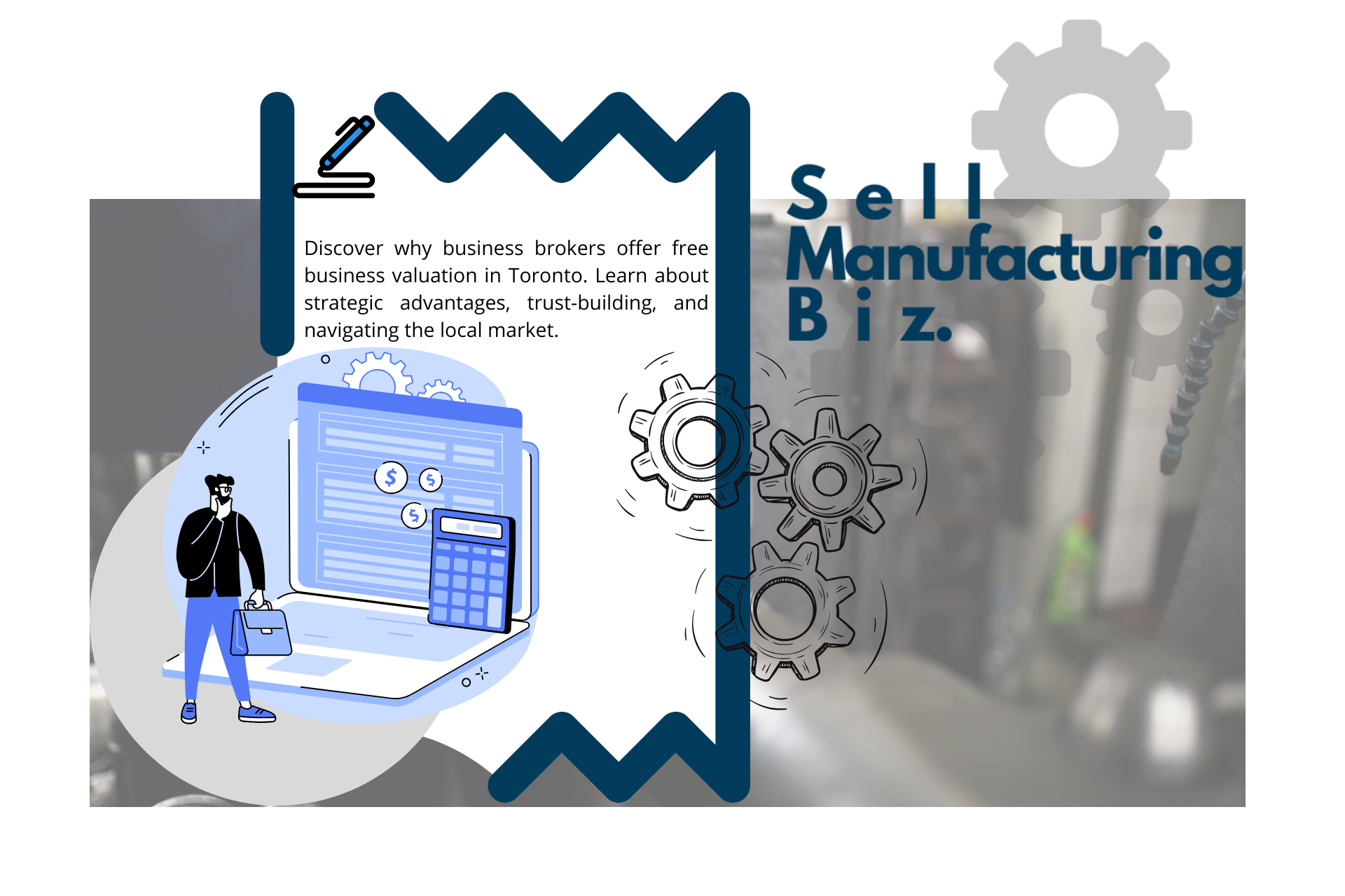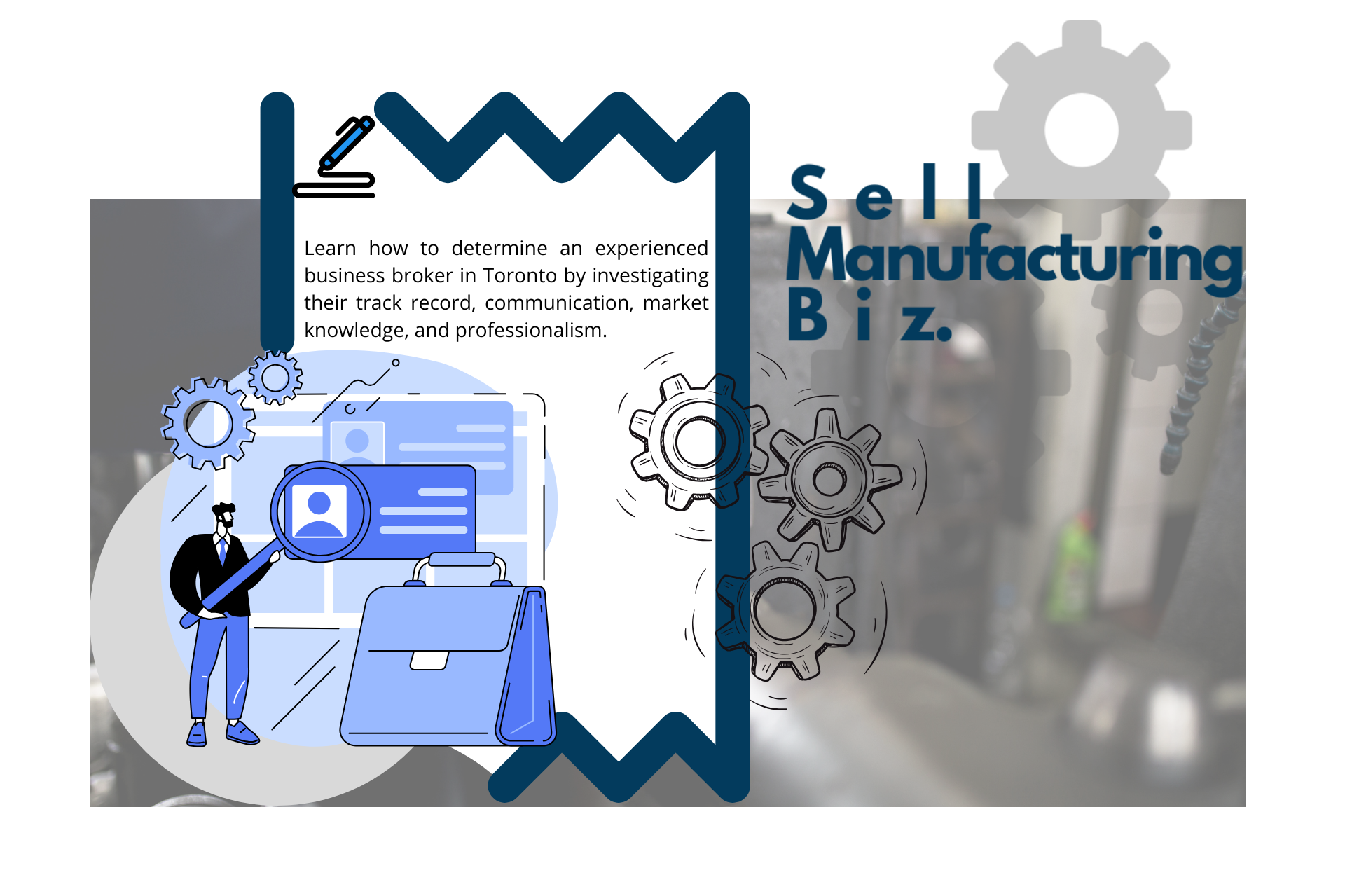Unlock Discovering Business Valuation Methods to Sell Your Manufacturing Business in Canada
How do you know what your manufacturing business is worth in Ontario, Alberta, British Columbia, or Edmonton, Canada? It's not as simple as looking at your balance sheet. In this guide, we'll explain the three main methods for a business valuation, the terms you need to know, and how to pick the best method for your situation.
Get The eBook ->
Get The eBook
Business Valuation Methods
Skyrocket Your Chance Of Success!
Guide to help in business valuation
The 3 Main Business Valuation Methods For A Manufacturing Company
To get to a fair market price for your manufacturer, there are three main appraisal methods:

Valuation Based On Assets
Asset-based business valuation is a method of estimating the value of a business based on its assets and liabilities. This method assumes that the value of a business is equal to the difference between the fair market value of its assets and the fair market value of its liabilities.
Assets can include both tangible and intangible resources, such as:
- property,
- equipment,
- inventory,
- patents,
- trademarks, etc.
- Liabilities can include debts, obligations, lawsuits, etc.
There are two main approaches to asset-based business valuation:
- the asset accumulation approach
- and the excess earnings approach.
The asset accumulation approach involves identifying and valuing each asset and liability separately, and then adding or subtracting them to get the net asset value.
The excess earnings approach involves estimating the earnings that a business generates from its intangible assets, such as:
- goodwill,
- customer loyalty,
- brand recognition, etc.,
- and adding them to the net tangible asset value.
Asset-based business valuation can be useful for businesses that have significant assets or are in distress. It can also provide a baseline or a minimum value for a business. However, asset-based business valuation also has some limitations and challenges.
For example, it may not capture the future earning potential or growth prospects of a business. It may also be difficult to obtain accurate and current market values for some assets and liabilities. Furthermore, it may not account for synergies or economies of scale that a business may have with other businesses.
A professional business valuator can help you find out how much your manufacturing business is worth. They use three different methods to calculate a fair market price for your manufacturer. This is the best way to appraise your business value.
How Much Someone Would Be Willing to Pay For Your Manufacturer?
One way to measure the worth of your manufacturing business is to look at how much someone would be willing to pay for it in Ontario, British Columbia, Alberta, or Edmonton, Canada. This is called the economic value of your business, and it depends on the benefits that the buyer or investor expects to get from it.
The economic value of your business may not be the same as the market value, which is the price that your business can sell for in the current market. The market value may be higher or lower than the economic value, depending on the demand and supply of businesses like yours.
The economic value of your business is not fixed but varies depending on whom you ask. Different buyers or investors may have different opinions about the potential benefits of your company, based on factors such as your:
- income or profits,
- brand recognition,
- and your assets.
To find out the fair market value of your business, you need to negotiate with the other parties involved, such as:
- buyers,
- investors,
- family members, etc.
The fair market value is the price that you and the other parties agree on after considering all the relevant factors.
Finding out the fair market value of your business can be complicated and time-consuming because there are many factors that can affect it.
Some of these factors are internal to your business, such as:
- partner ownership
- and taxation.
Some are external to your business, such as:
- economic conditions,
- legal changes,
- and personal situations.
That's why many manufacturing business owners in Canada seek the advice of a professional M&A business broker who can help them estimate the fair market value of their small or medium size manufacturing company based on their experience and expertise.
Book Value: The Face Value Of Your Manufacturer
The book value of your company is based on the numbers in your balance sheet. It shows the value of your shareholders' equity by subtracting your total liabilities from your total assets.
Book value is also known as the net asset value of your business. Your assets can include both tangible and intangible assets, such as:
- brand recognition,
- patents and licenses,
- and goodwill.
- Your liabilities can include items like trading costs, taxes, and other charges, as well as debt.
Liquidation Value: A Valuation Method For Distress Manufacturer
If your company goes out of business, you would probably try to sell as many of your assets as possible to recover some of your losses. This is what liquidation value measures.
Liquidation value is the net value of your physical assets if they were sold at market prices. It does not include any intangible assets.
Liquidation value is usually needed when a company is facing bankruptcy. All of the remaining physical assets can be valued and then distributed among shareholders, partners, lenders, and any other creditors.
Liquidation value is usually lower than book value because book value uses the historical cost of assets, which may be higher or lower than their current market value. Assets are also sold at a loss during liquidation because the seller needs to raise cash quickly.
Key Takeaways: Asset-Based Valuation
- Asset-based valuation is a way of finding out how much a manufacturing business is worth by looking at its assets and liabilities.
- Assets are things that the manufacturing company owns in Canada, such as land, buildings, equipment, inventory, etc. Liabilities are things that the business owes, such as loans, taxes, accounts payable, etc.
- The value of the manufacturing venture is calculated by subtracting the liabilities from the assets. This is also called the net asset value or the book value.
- However, not all assets and liabilities are easy to measure or have the same value as they appear on the balance sheet. For example, some assets may be outdated or overvalued, while some liabilities may be contingent or uncertain.
- Therefore, asset-based valuation often requires adjusting the assets and liabilities to their fair market value, which is the price that they would fetch in an open market.
- Asset-based valuation can be useful for businesses that have a lot of tangible assets and few intangible assets, such as manufacturing or real estate companies.
- It can also be helpful for businesses that are in financial distress or liquidation, as it can show the minimum value that the business can be sold for.
- Needless to say, asset-based valuation has some limitations. It does not capture the value of intangible assets such as goodwill, brand name, customer loyalty, patents, etc., which can be significant for some businesses.
- It also does not reflect the future earning potential or growth prospects of the business, which can affect its value.
- For all those reasons, asset-based valuation should not be used alone, but rather in combination with other valuation methods that consider income and market factors.
Manufacturing Business Valuation Based On Income
One way to estimate the value of a business is to use the income-based valuation method, which focuses on the earnings and profits of the manufacturing business. This method analyzes the past and future cash flow of the manufacturing company in Ontario, as well as other factors that affect its income, such as business debts.
It's also suitable for small to medium size manufacturers that have a lot of data and a long history of operations. It is also ideal for businesses that have:
- established business models,
- loyal customers,
- and stable performance.
The income approach can be very helpful for manufacturing business owners who want to sell their business in Canada, as it can help them get the best price for their manufacturer.
To apply this method, business owners in the manufacturing industry need to consider various aspects of their business, such as:
- sales,
- expenses,
- profits,
- losses,
- debts,
- assets,
- investments,
- growth potential,
- and other financial matters.
Needless to say, this method is not the only way to value a manufacturing company. Business owners in the small to medium manufacturing sector should also explore other methods that might be more appropriate for their situation.
For instance, the comparative valuation method is another way to value a business by comparing it with similar manufacturing businesses in the same industry or niche. This method takes into account factors such as:
- size,
- sector,
- location,
- economic conditions,
- and other characteristics of the business.
This method is suitable for manufacturing businesses that have:
- low risk,
- normal cycles,
- and a clear business plan.
Income Valuation Method
The income approach, also called the income-based business valuation method, is similar to the market capitalization method that we will explain later in this guide.
This approach uses the current value of the future expected economic benefits of the manufacturing business to estimate its value.
The most common economic benefit used in this approach is the cash flow of the business.
The income approach is suitable for manufacturing companies that have high and consistent revenues, as they can show a significant value based on their income.
However, this approach has two main methods:
- capitalization of earnings (or market capitalization)
- and discounted cash flow.
The capitalization of earnings method is more reliable than the discounted cash flow method because the latter depends on the accuracy of future cash flow projections.
Capitalization of Earnings: Calculate Your Manufacturer Current Market Value
If you want to estimate the current market value of a small to medium size manufacturing business in Canada, you can use the capitalization of earnings method.
This method is based on the idea that a business is worth its future profits or cash flows discounted to the present value.
To apply this method, you need to adjust the earnings of the manufacturing business for any extraordinary or non-recurring items, and then divide them by a capitalization rate that reflects the risk and return of the business.
This way, you can capture the long-term sustainability and profitability of the manufacturing business, unlike other methods that only focus on a single period.
Discount Cash Flow (DFC): Calculate Future Cash Flow For Your Manufacturing Business
The DCF valuation method is a way of estimating the value of your manufacturing business based on its future cash flows.
By projecting how much money your manufacturing venture will generate and spend in the future, and then applying a discount rate to reflect the time value of money, you can get a present value of your business.
This method is particularly useful when your manufacturing enterprise in Canada has uneven or unpredictable profits over time - but it also requires careful attention to ensure the accuracy of your calculations!
Market Capitalization Of Your Business
One of the most common and easy ways to determine how much a manufacturing business is worth is market capitalization or market cap. To calculate market cap, a business has to multiply the current price of one share by the total number of shares that are available. The result is the value of the business.
Multiples Of Earnings: Calculate Industry-Specific Multiplier
Another way to estimate the value of a manufacturing business is to use the multiple of earnings valuation method.
This method compares the earnings of a manufacturing company to a multiple that reflects its risk and growth potential. The multiple can be based on the price-to-earnings ratio, which is the current share price divided by the earnings per share. This ratio shows how much investors are willing to pay for a company's earnings.
A higher ratio means a higher valuation. The earnings used in this method can be adjusted for various factors, such as:
- interest,
- taxes,
- depreciation,
- amortization,
- non-recurring items,
- or owner compensation.
The multiple of earnings valuation method can help you understand the maximum value potential of a company by applying an industry-specific multiplier to its current revenue.
However, this method may not capture all the aspects of a manufacturing business, such as its:
- assets,
- liabilities,
- management,
- or future prospects.
This is why, it is important to use other valuation methods and benchmarks to get a more accurate picture of a manufacturing business's worth.
Times Revenue Method: Straightforward Business Valuation Approach
One of the simplest ways to estimate the value of a manufacturing business is to use the times revenue method. This method involves applying a certain multiple to the current revenue of the business, which depends on the industry and the characteristics of the business. The result is an approximate value of the business based on its sales.
To use this method, you need to know the revenue of the business for a specific period of time, such as the last fiscal year. You also need to know the appropriate multiple for your industry and your business situation, which can be influenced by factors such as growth potential, profitability, and risk profile. A certified mergers and acquisitions (M&A) advisor can help you determine the best multiple for your manufacturing company.
The times revenue method is not very reliable and should be used with caution. It does not account for the:
- expenses,
- assets,
- liabilities,
- or cash flow of the business.
It also assumes that the revenue of the business is stable and predictable, which may not be true in some cases.
Needless to say, it is advisable to use other valuation methods in conjunction with the times revenue method to get a more accurate estimate of the value of your business.
Wrapping Up - Income Based Valuation
- Income-based valuation is a method of appraising a manufacturing business based on its ability to generate income or cash flows .
- It involves capitalizing the income streams to obtain a present value, and discounting them by a rate that reflects the risk and uncertainty of achieving the projected income .
- The income approach is commonly used for income-producing properties, such as real estate, but it can also be applied to other types of businesses, especially those in the small and medium size manufacturing businesses in Canada .
- This approach requires careful research and analysis of the business's current and future earnings, as well as the industry conditions and trends that may affect the multiplier used in the valuation .
- The income method also considers both tangible and intangible assets of the business, such as customer loyalty, brand recognition, and intellectual property, that may influence its value and attractiveness to potential buyers.

Business Valuation Based On The Market
Market-based business valuation is a technique that estimates the value of a manufacturing business by comparing it to similar manufacturers in Ontario, British Columbia, Edmonton, or Alberta that have been sold recently. It is a suitable method for manufacturers that operate in similar markets, has comparable business models and sizes, and have ongoing transactions with customers or clients.
An example of companies that can use this method is machine shop companies that offer parts, tools, and custom design machinery for sale. However, this does not mean that other types of manufacturers cannot benefit from this method. The business appraiser will need to understand the manufacturing business sector and its potential buyers to find comparable manufacturers and their sale prices.
The business valuation expert will usually look at five to ten comparable manufacturing businesses' sales and calculate an average value based on the sale price. This value is then adjusted for any manufacturing business-specific factors and information that may affect the value of the business for sale.
Business valuation services will also take into account:
- the business's risk exposure,
- growth potential,
- and other factors that may influence the value of the business.
It is important to remember that business valuation is not an exact science; it is a subjective business decision based on the business valuator's experience and expertise.
The Market Method
Determining the value of your business is always a tricky task, and no single approach fits every company. The market valuation method can be an attractive option to many manufacturing businesses; however, it's not without challenges.
Specifically for small and medium size manufacturing businesses, accurate comparison data may prove difficult or impossible to source—making this method highly demanding in these cases!
When you’re selling your manufacturing company in Ontario, it’s important to use an experienced business valuation service to ensure you get the best possible business appraisal.
A business broker specializing in valuations of small to medium manufacturers in Ontario can help by providing this service to you. Make sure they are certified appraisals and licensed in Ontario, Canada to get the best-estimated selling price for your manufacturer.
Market Approach Methodologies
The market approach is a method of valuing a business based on the prices of similar businesses in the market. It uses ratios such as:
- price-to-earnings,
- price-to-book value,
- or enterprise value to EBITDA to compare different businesses and adjust for their differences.
The market approach can be useful when there is enough data on comparable transactions, but it may not work well when the business is unique or operates in a niche market.
Final Takeaways: Market-Based Valuation
- Market-based valuation is a method that uses market prices of similar assets or businesses to estimate the value of an entity.
- Two common market-based valuation methods are the Guideline Public Company Method and the Guideline Transactions Method.
- The Guideline Public Company Method compares the target company to publicly traded companies in the same industry and applies valuation multiples based on their market prices.
- The Guideline Transactions Method compares the target company to similar companies that have been sold or acquired recently and applies valuation multiples based on their transaction prices.
- This valuation method requires adjustments for differences in size, growth, profitability, risk, and other factors between the target company and the comparable companies.
- It is useful when there is sufficient data available on comparable transactions and when the market conditions are stable and representative of the future performance of the target company.
- Needless to say, this business valuation method should be used with caution and cross-checked with other valuation methods, such as the income approach or the cost approach, to ensure reliability and accuracy.
Would you like to know how much your manufacturing company is worth?
Sell Your Manufacturing Business For What It's Worth In Canada
The goal of a business valuation is to sell your manufacturing business in Canada for what it is worth. It also helps buyers evaluate the value of the business they want to buy.
A professional M&A advisor can assist you with this task. They have the expertise, tools, and experience to apply the appropriate methods and techniques to value your business.
Some of the methods and techniques include:
Market Capitalization
Times Revenue Multiplier
Earnings Multiplier
Discounted Cash Flow Method
Book Value
Liquidation Value
Replacement Cost
Asset-Based Valuation Method
Comparables
Every manufacturing business is different and requires a different valuation method. Using the wrong method can cause an inaccurate valuation.
An M&A advisor can advise you on choosing the best method for your business. This is important because buyers often need financing or loans to buy a manufacturing business. If the price is too high, they may not be able to get it.
Ready to get a free business valuation? - Get Full Report & A Probable Selling Price
Financial Documents For Conducting Business Valuation For Your Manufacturing Company in Canada
To get a reliable and accurate valuation of your manufacturing business from a professional evaluator in Ontario, British Columbia, Edmonton, or Alberta you will need to provide some essential documents.
These documents include:
- The tax returns of your business for the last three years (2020, 2021, and 2022).
- The profit and loss statement for the current year (2023) is up to date.
- A balance sheet that shows your assets and liabilities as of now.
These documents will help the evaluator understand your business performance, financial position, and future prospects.
Preparing these documents in advance will save you time and hassle, and will ensure that you are ready for any valuation scenario.
To get started, let's take a deep dive into some formulas used in business valuation!
Next - Go to
business valuation formulas
FAQ's
Business Valuation Methods
ButtonBusiness Valuation Methods: FAQs
Discover Business Valuation Methods For Manufacturing Companies in Canada
Do you want to know how much your manufacturing company is worth? If you're thinking of selling or buying a business, you need to have a clear idea of its value. But how do you find out? This guide will teach you everything you need to know about valuing a manufacturing company in a simple and easy way. You'll learn the different methods of valuation, the factors that affect the value, and the steps to take to prepare your company for sale. Whether you're a seller or a buyer, this guide will help you make smart decisions and get the best deal possible.




